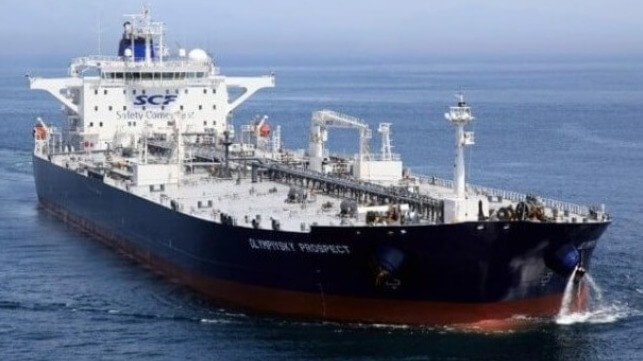Report: India Turning Away Russian Tankers Due to Fears From U.S. Sanctions

India which emerged as one of Russia’s largest oil customers in the two years since the invasion of Ukraine appears to have formally decided to turn away Russian tankers due to fears of the increased U.S. sanctions. There had previously been individual reports of India delaying tankers or Russian vessels turning around after they were sanctioned since the U.S. began late in 2023 increasing enforcement of the price cap on Russian oil imposed by the West.
Reliance Industries, India’s largest private refiner, was reported earlier in the week by Bloomberg and Reuters to have begun closely scrutinizing the ownership of the tankers transporting oil purchases. The company was reported to be refusing shipments carried on the vessels of Sovcomflot, which the U.S. officially sanctioned in February following earlier individual actions.
The unofficial ban on oil coming to India aboard Sovcomflot or other vessels subject to the U.S. sanctions has been expanded to all of India’s largest buyers Bloomberg reports today. They are citing “people familiar with the matter,” saying that the ownership of the tankers is being reviewed for exposure to the sanctions.
The U.S. began sanctioning individual tankers and managers based in Dubai and elsewhere citing instances of transporting Russian oil above the price cap. Then in February, they specifically listed Sovcomflot and 14 tankers for violations of the price cap.
This week’s reports from Bloomberg and Reuters follow a statement from Sovcomflot acknowledging the mounting challenges to transport crude oil. Sovcomflot on Monday issued 2023 financial results saying it had stable income from existing long-term contracts and strong market conditions. They however also commented, “The company's activities are subject to the influence of geopolitical factors and illegally imposed sanctions from unfriendly countries. The company carries out systematic work aimed at overcoming emerging challenges.”
After earlier actions, Sovocmflot sold tankers and vessels were moved to third-party managers based in the UAE and elsewhere. Reports have also cited instances of tankers changing flags to lesser registries. Lloyd’s List is reporting today that a dozen tankers from the shadow fleet jumped so far this year from registries in the Marshall Islands and Liberia to lesser flags including Antigua and Barbuda. Another flag that saw growth was Gabon.
Today’s articles do not indicate that India has stopped buying Russian oil, but instead that it is placing additional restrictions on the transport of the oil.

that matters most
Get the latest maritime news delivered to your inbox daily.
This week it was also reported by Reuters that Turkey’s Dortyol terminal operated by Global Terminal Services had also decided to turn away Russian oil. China however remains a large customer for both Russia and Iran despite the U.S. specifically citing transactions and shipments. China has also been indirectly linked to illegal ship-to-ship transfers in Asia as tankers seek to hide the transportation of sanctioned cargoes bound for China.
Bloomberg compiled data showing that so far in March shipments of Russian oil are about a third of the levels in January and February. This comes after the U.S. and UK both increased sanctions including new efforts targeted at the oil trade.
